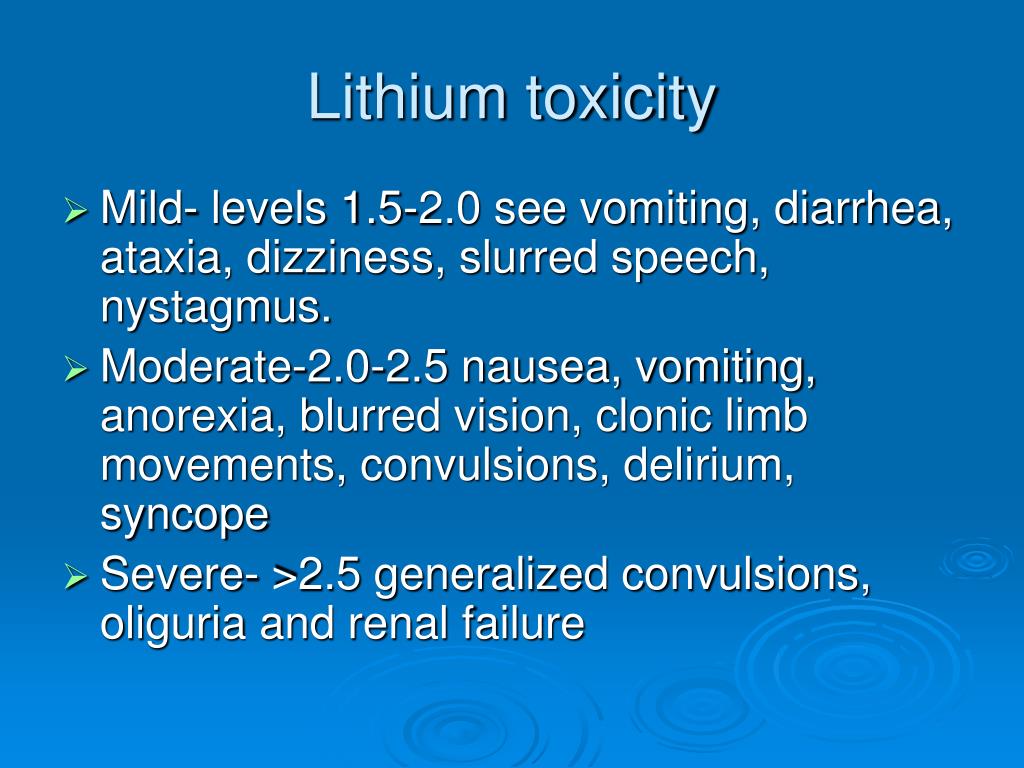

It is crucial to weigh the risks versus benefits of continuing a pregnant patient on lithium. Ebstein's anomaly is a cardiac defect in infants associated with lithium treatment during pregnancy. Lithium is not considered for treatment during pregnancy due to a 2 to 3 fold increase of significant congenital disabilities. It is also not advisable to consider lithium for treatment in children under 12 years of age. A cardiology consult is necessary if a patient experiences unexplained palpitations and syncope. Lithium causes reversible T wave changes and can unmask Brugada syndrome. It is also not recommended in patients with cardiovascular disease. Lithium is not recommended in patients with renal impairment. Carbamazepine, phenytoin, and methyldopa may increase the toxicity of lithium. Metronidazole raises lithium levels by decreasing its renal clearance. Certain medications increase serum lithium levels, including diuretics (especially thiazides), non-steroidal anti-inflammatory drugs like ibuprofen and COX-2 inhibitors, and angiotensin-converting enzyme inhibitors.

Rapid discontinuation increases the risk of relapse. Lithium should be tapered gradually over three months. The preferred agents are valproate, lamotrigine, and atypical antipsychotics like risperidone, olanzapine, quetiapine, ziprasidone, and aripiprazole. If patients do not show an adequate response, the clinician should consider augmentation. Lower doses and lower serum levels of lithium are preferable in elderly patients. A single nighttime dose may be a consideration to minimize side effects in stabilized patients. In cases where the patient does not display an adequate response, consider monitoring plasma levels, and titrating the dose. Many patients show only a partial reduction of symptoms, and some may be nonresponders. It takes about 1 to 3 weeks for lithium to show the effects and remission of symptoms. The dosage usually starts at 300 mg twice or three times a day. The liquid formulation is available as 8 mEq/5 mL strength. Capsules are available in 150 mg, 300 mg, and 600 mg strength. The tablet is available in a controlled release 450 mg tablet or a slow-release formulation in a 300 mg tablet. Lithium is administered orally in pill form, capsule, or liquid.


 0 kommentar(er)
0 kommentar(er)
